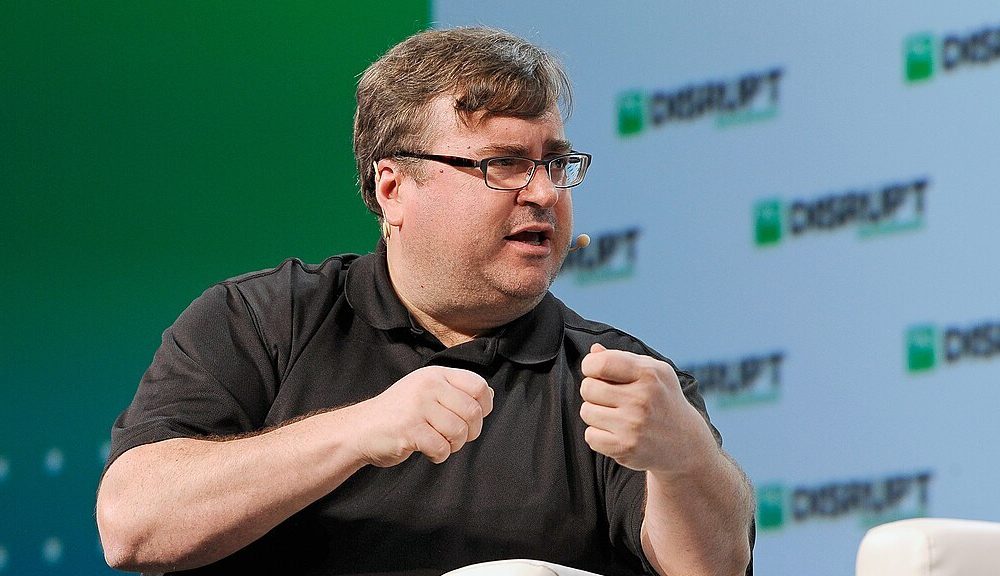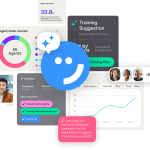Reid Hoffman on AI, Tech Trust, and the Future of Human Agency — Exclusive Insights from BBC Hardtalk
Quick Take: Reid Hoffman calls AI the “cognitive Industrial Revolution” that will empower workers rather than replace them. Amid rising public mistrust and widening wealth gaps, he believes transparent, iterative innovation is the key to a responsible tech future.
By CEOTodayMagazine.com
The Crisis of Public Trust in Technology
Reid Hoffman, the tech billionaire who co-founded LinkedIn, is well-known as a leading Silicon Valley innovator and investor in artificial intelligence. Yet despite his track record of transforming digital payments, professional networking, and now AI development, Hoffman is candid about the crisis of confidence technology currently faces.
In a recent interview with BBC’s Hard Talk, he acknowledged this loss of public trust but insisted it "should not be" the defining narrative. The tech industry, he argued, has delivered enormous benefits to society, but the pace and nature of innovation have created new challenges that require nuanced understanding and response.
“There is a crisis of public confidence in technology,” Hoffman said, “but I don’t believe it should be that way.” While some of the early promises of the internet remain unfulfilled, he emphasized the positive developments, such as the democratization of information through platforms like Wikipedia, and the career opportunities LinkedIn provides to hundreds of millions of people worldwide.
Hoffman offered a broader perspective, rejecting simplistic ideas that technology is either purely empowering or purely damaging: “It’s empowering both individuals and authoritarian regimes,” he explained. The internet’s power to break down hierarchies and provide access to knowledge has been profound. Yet the same technologies can also be harnessed by states or malicious actors to manipulate and control.
“The challenge,” he said, “is how society navigates these dual uses. How democracies regulate and shape technology without stifling innovation, and how authoritarian states use it differently.”
The Wealth Divide and the Tech Elite
When pressed on the criticism that the tech revolution has primarily enriched an ultra-wealthy few — the so-called “tech bros” — Hoffman was frank but nuanced.
“It’s the nature of human society that some people disproportionately benefit,” he said. But he cautioned against using tech billionaires as scapegoats or symbols of inequality unique to this era.
“Entrepreneurs get wealthy — that has been true not just in the internet age, but across industries throughout history, from railroads to energy to telecommunications,” Hoffman said.
Critics like science fiction writer Ted Chiang have argued that the internet era has primarily enriched the “top 1% of the top 1%,” leaving the broader population behind. Hoffman doesn’t dispute the concentration of wealth but pushes back on the notion that average citizens have not benefited at all.
“Billions of people every day use the internet for information, navigation, communication, and commerce,” he said. “From Google Maps to discovering new products, education to medical resources, there are enormous benefits.”
He conceded the system is imperfect and that challenges around inequality and access remain, but insisted the narrative that “only a handful benefit” is not accurate.
Artificial Intelligence: The Cognitive Industrial Revolution
One of the central topics of the interview was AI’s transformative potential—and the fears it raises.
Hoffman rejects the dystopian view that AI will simply automate away jobs, leaving millions unemployed.
Instead, he described AI as a tool that will “help people replace the person doing the job—with themselves,” by augmenting human productivity. This distinction is critical: the future of work, in Hoffman’s vision, involves humans working with AI systems, not being replaced by them.
He coined AI as a “cognitive Industrial Revolution,” highlighting its transformative power akin to past industrial shifts that reshaped societies and economies. He stressed, however, that the transitions will be difficult and must be managed better than previous upheavals.
“The Industrial Revolution created a large middle class, expanded education, and supported democracy—but it was a hard transition,” Hoffman said. “We should learn from history and try to make this transition to AI smoother.”
This balanced optimism is notable given that many tech figures—including Elon Musk—have warned that AI could eliminate most jobs within a decade.
Profit, Purpose, and the Evolution of OpenAI
Hoffman also addressed a frequent criticism of AI’s development: the tension between profit motives and ethical responsibility.
OpenAI, the organization behind ChatGPT and a pioneer in the AI field, began as a nonprofit with a mission to advance artificial general intelligence (AGI) for humanity’s benefit. However, it has since transitioned into a “public benefit corporation” — a hybrid model that allows for-profit investment, notably from Microsoft, while retaining a stated commitment to ethical goals.
“The philanthropic capital market was insufficient to support the scale of AI development needed,” Hoffman explained. “So OpenAI adopted a structure that balances mission with access to capital.”
While acknowledging that Microsoft now holds a significant stake and profit share, Hoffman stressed OpenAI’s independent board maintains oversight, with the mission guiding decisions.
This raises important questions about how AI governance should evolve, especially as private companies play dominant roles in a technology with profound societal impact.
Human Agency in the Age of AI
A recurring theme Hoffman returned to was the importance of human agency—the ability of people to control their own lives and choices—in the context of powerful AI systems.
“You start these transitions with a loss of agency,” he said, referencing the anxiety many feel as machines take on more autonomous roles. But “when you reach the other side,” he argued, human agency expands beyond what was previously possible.
He cited the historical example of the horse-and-buggy carriage being replaced by the automobile. While some jobs and skills were lost, the industrial revolution ultimately created new opportunities, higher standards of living, and broad social benefits.
Hoffman believes the AI revolution holds a similar promise if managed responsibly.
Regulating Innovation: The Case for Iterative Deployment
Hoffman is skeptical of heavy-handed, preemptive regulation that tries to anticipate every possible harm before new technologies are allowed to develop.
“Europe often tries to pre-plan innovation with strict rules that slow progress,” he said. “That’s why it doesn’t have as many exciting software companies as the U.S.”
Instead, Hoffman advocates an “iterative deployment” model, where technology is introduced progressively, with public feedback and regulatory adjustments along the way.
He used the automobile industry to illustrate: if cars had to be proven perfectly safe before release, we might never have had mass adoption. Instead, society added safety features like seat belts over time.
The same principle, Hoffman argues, should apply to AI.
Geopolitics and the Global AI Race
China’s rapid progress in AI was another key topic.
While acknowledging China’s aggressive investment, Hoffman does not believe it is currently overtaking the U.S. in cutting-edge AI research.
However, he noted significant challenges in establishing global governance for AI, drawing parallels with climate change negotiations — where the difficulty of international cooperation has limited effective action.
“If global cooperation isn’t possible,” he said, “then we must rely on strong leadership and responsible practices in democratic societies.”
This underscores the geopolitical stakes of AI as a strategic technology.
Tech Elites and Political Influence
Hoffman was notably critical of Elon Musk’s conduct in recent years, especially regarding politics and social media management.
“He’s been trusted with space exploration and electric cars, but when it comes to government and politics, he’s been deeply irresponsible,” Hoffman said bluntly.
He stressed that governments function fundamentally differently from corporations, and that tech leaders should respect democratic institutions rather than try to run or reshape them like businesses.
The interview also touched on concerns about the alignment of some tech elites with political power centers, particularly in the United States. Hoffman positioned himself as swimming “against that tide,” emphasizing his commitment to democracy and transparency.
Disinformation and Accountability
The discussion also addressed accusations against Hoffman himself regarding political disinformation linked to a 2018 U.S. Senate race, which Hoffman firmly denied.
He explained that while he did fund organizations studying social networks, he was unaware of any intentional misuse of his funds for disinformation campaigns. Upon learning of possible misuse, he said he took immediate steps to impose stricter controls.
This episode highlights the complexities of tech funding intersecting with political influence and misinformation risks.
The Path Forward: Consent and Transparency
Hoffman closed the conversation by articulating his vision for the future of technology development, based on public engagement, consent, and openness.
“What we call ‘consent of the governed’ means involving people in using, experiencing, and critiquing AI and other technologies,” he said.
He acknowledged that no technology affecting millions will please everyone but emphasized the importance of transparent dialogue and willingness to adapt.
“Look at LinkedIn. Millions find real value there,” he said. “If you don’t trust LinkedIn, that’s okay. But many people say it’s made a real difference in their lives. That’s the kind of impact I want AI to have.”
Final Thoughts
Reid Hoffman’s perspective offers a nuanced, cautiously optimistic outlook on AI and technology’s role in society. His emphasis on human agency, iterative innovation, and democratic accountability speaks to the complexity of harnessing transformative tech while managing its risks.
As AI continues to advance and reshape industries and daily life, his call for trust built through transparency and public participation is more relevant than ever.
What do you think about AI’s future and the role of tech billionaires?
Share your thoughts in the comments below or follow us on Twitter and Facebook for more exclusive CEO insights.












